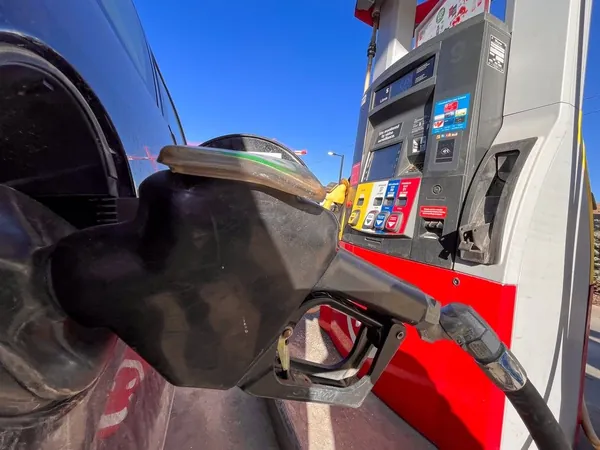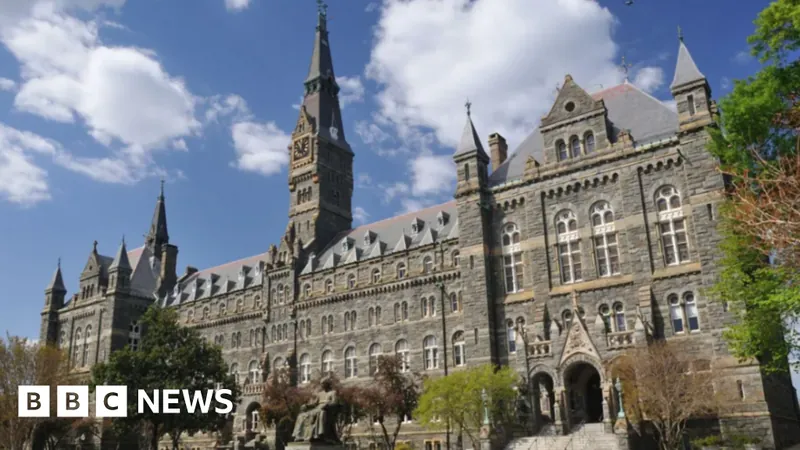
Major Shift in B.C.'s Carbon Tax: Here's What You Need to Know!
2025-03-18
Author: Charlotte
Overview of the Shift in B.C.'s Carbon Tax
B.C.'s carbon tax, which has been in place for the past 17 years, is about to undergo a significant transformation. Following the recent announcement by the new Prime Minister, Mark Carney, to reduce the federal consumer carbon tax to zero, B.C. Premier David Eby has declared that the provincial consumer carbon tax will also be eliminated.
Premier Eby revealed the government's plans for legislation to scrap the consumer portion of the tax. "This was an ideal policy from the perspective of economists... But politics ultimately seems to be killing it," commented Marc Lee, an economist with the Centre for Policy Alternatives in B.C.
Until now, the federal tax did not apply to British Columbia since the province had been operating its own carbon tax system. However, this impending change is set to have a noticeable impact on the wallets of B.C. residents.
What Changes Will B.C. Residents Experience?
When the carbon tax is eliminated, drivers can expect to see a reduction of 17.61 cents per liter on fuel prices. Homeowners will also benefit from the removal of the $3.97 per gigajoule charge for heating their homes. According to estimates from the Canadian Taxpayers Federation, without the carbon tax, an average family of four could save around $1,163 annually on fuel and heating costs.
In addition, B.C.'s quarterly carbon tax rebate program, which provided financial assistance to lower-income households, is also set to be abolished. This program had been designed to mitigate the impact of carbon taxes, giving individuals earning up to $41,000 and families earning up to $57,000 an annual credit of up to $1,134.
What Are the Financial Implications for B.C.'s Budget?
The elimination of the consumer carbon tax is expected to have a considerable impact on B.C.'s budget, which is already facing a $10.9-billion deficit. The provincial government had projected that the carbon tax would contribute approximately $3.05 billion to the budget for the 2025 fiscal year.
With the scrapping of the rebate program—anticipated to distribute around $1 billion this fiscal year—B.C. faces a net revenue loss of about $1.8 billion. This will exacerbate the existing deficit, raising concerns among fiscal analysts and policymakers about the sustainability of the province’s financial health.
"It’s something to give us pause," stated Jairo Yunis, director of policy for the Business Council of B.C., expressing apprehension about managing the growing budget deficit amid these substantial tax changes.
What About Large Industrial Emitters?
While the focus has predominantly been on consumer impacts, the status of the carbon tax on large industrial emitters remains to be clarified. As the policy landscape evolves, it’s crucial for B.C. to balance economic growth with environmental responsibilities.
As B.C. transitions away from its consumer carbon tax, all eyes will be on both the short-term and long-term consequences of this monumental decision. How will residents adapt to these changes? And what does this mean for the future of climate policy in Canada? Stay tuned for developments as this critical story unfolds!









 Brasil (PT)
Brasil (PT)
 Canada (EN)
Canada (EN)
 Chile (ES)
Chile (ES)
 Česko (CS)
Česko (CS)
 대한민국 (KO)
대한민국 (KO)
 España (ES)
España (ES)
 France (FR)
France (FR)
 Hong Kong (EN)
Hong Kong (EN)
 Italia (IT)
Italia (IT)
 日本 (JA)
日本 (JA)
 Magyarország (HU)
Magyarország (HU)
 Norge (NO)
Norge (NO)
 Polska (PL)
Polska (PL)
 Schweiz (DE)
Schweiz (DE)
 Singapore (EN)
Singapore (EN)
 Sverige (SV)
Sverige (SV)
 Suomi (FI)
Suomi (FI)
 Türkiye (TR)
Türkiye (TR)
 الإمارات العربية المتحدة (AR)
الإمارات العربية المتحدة (AR)